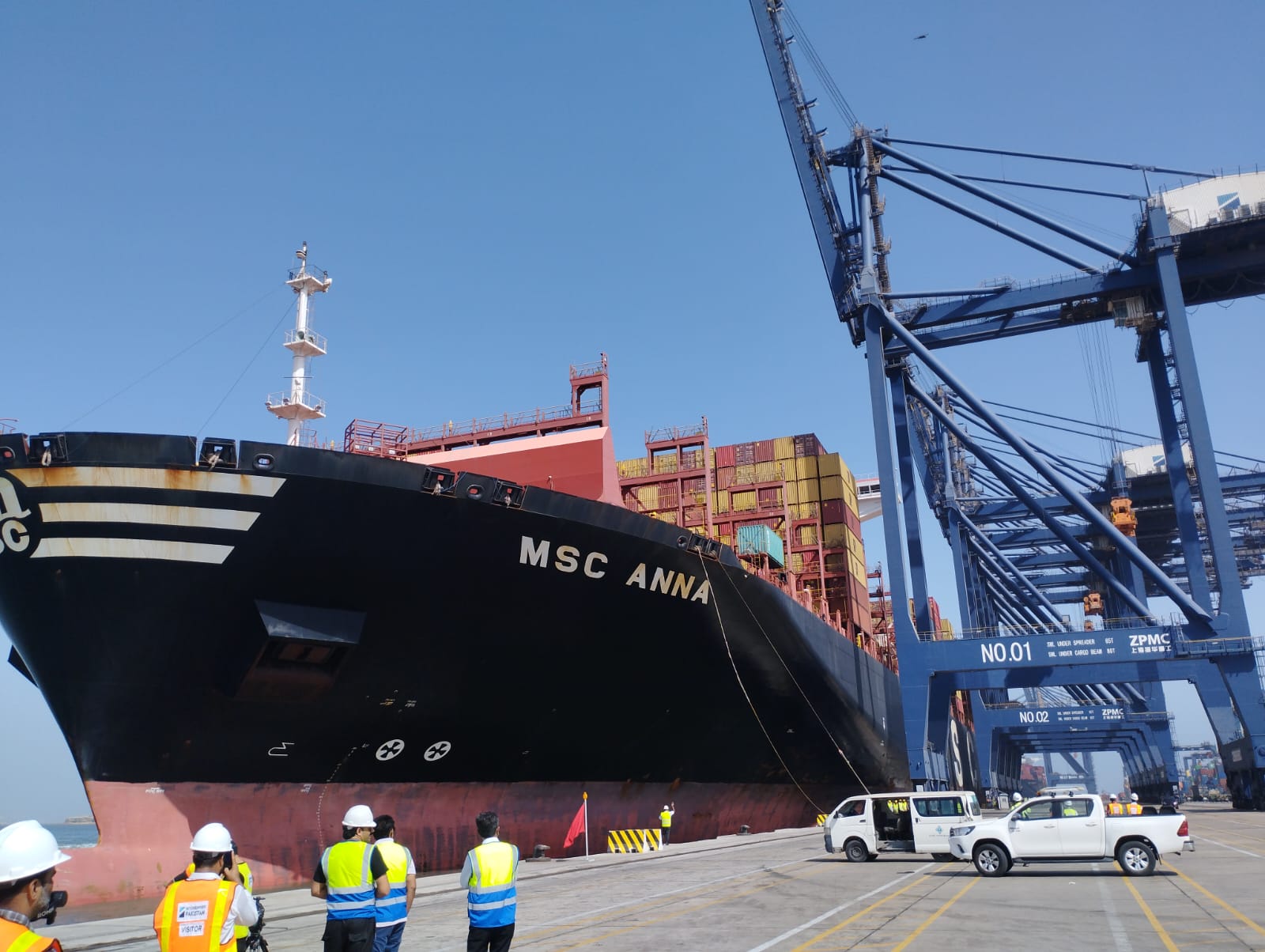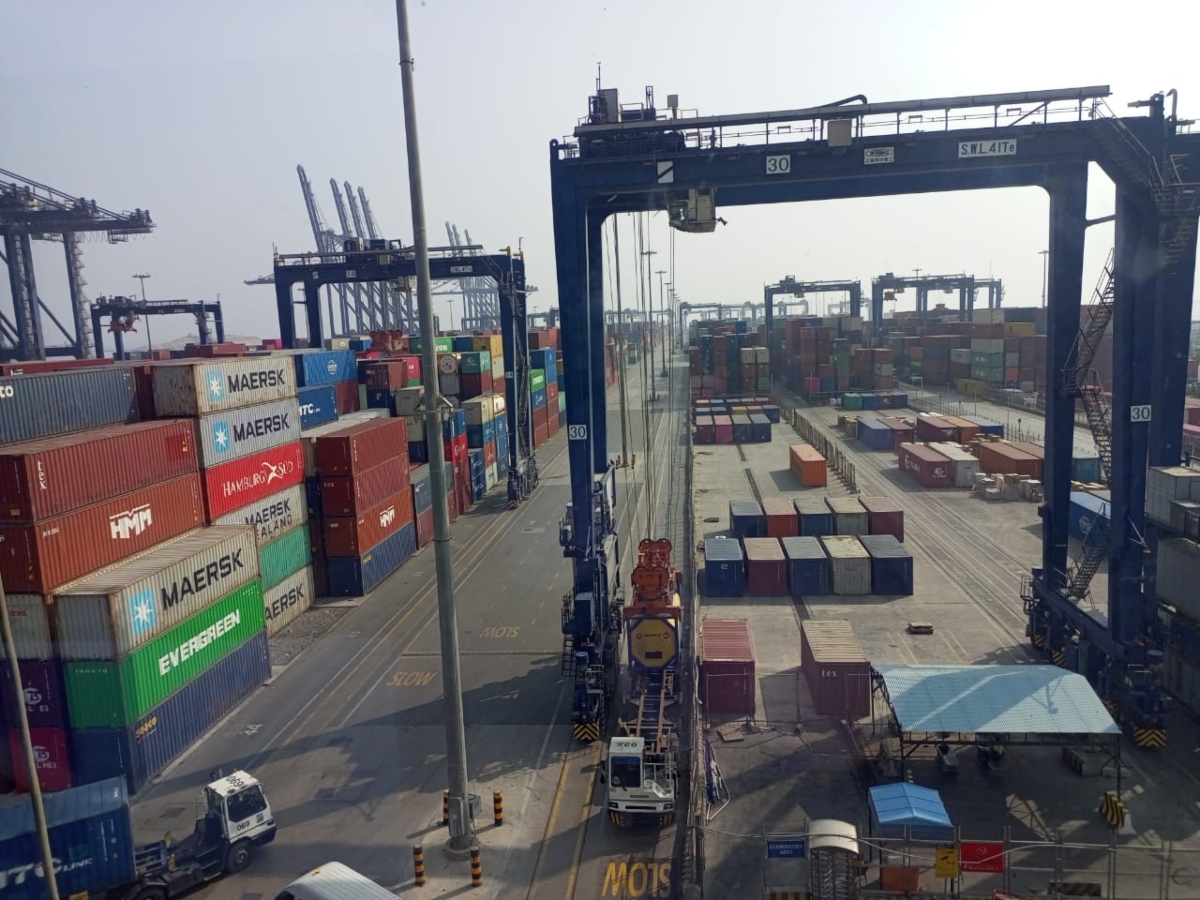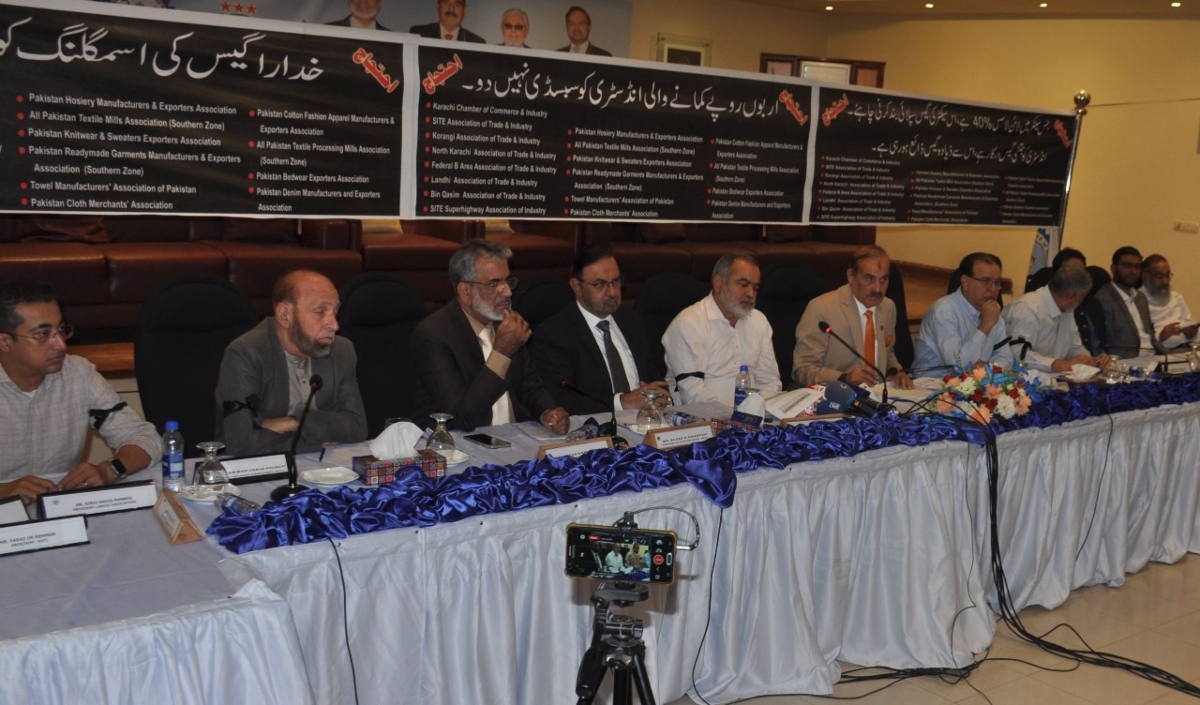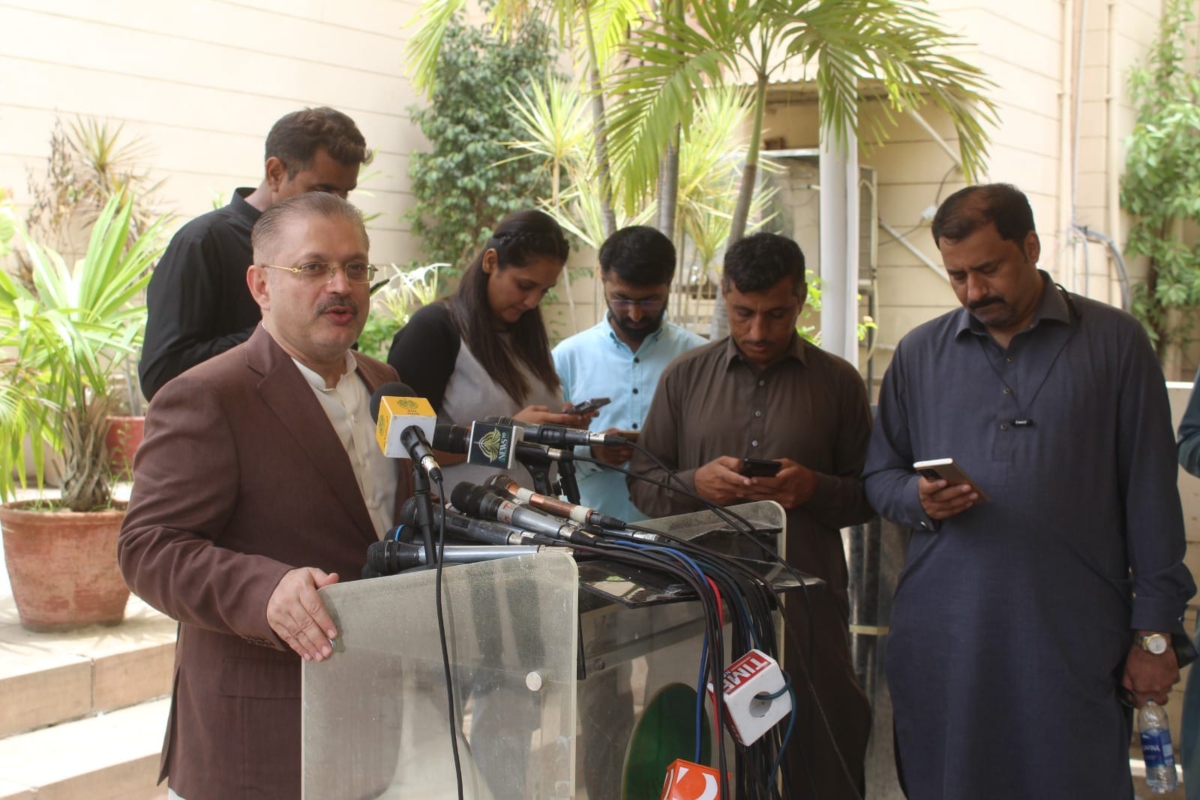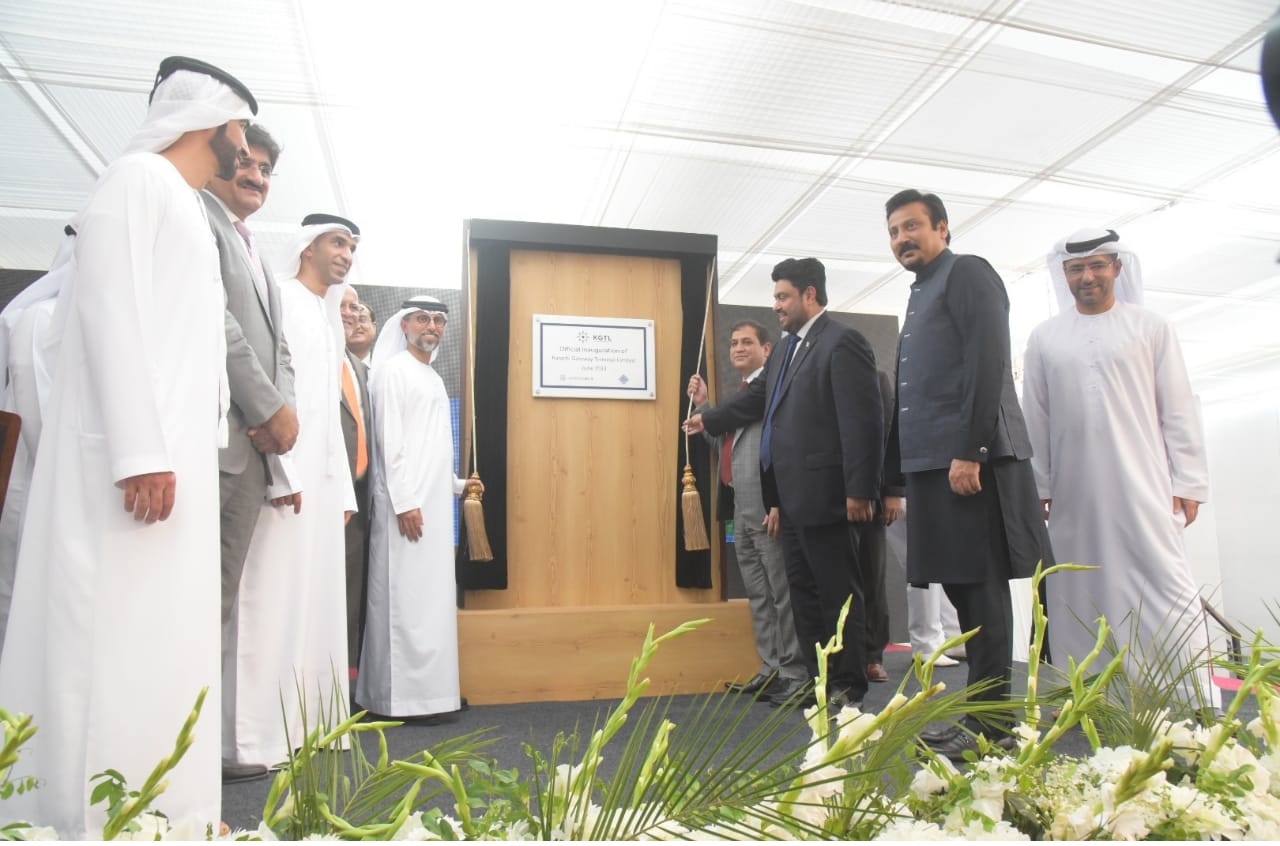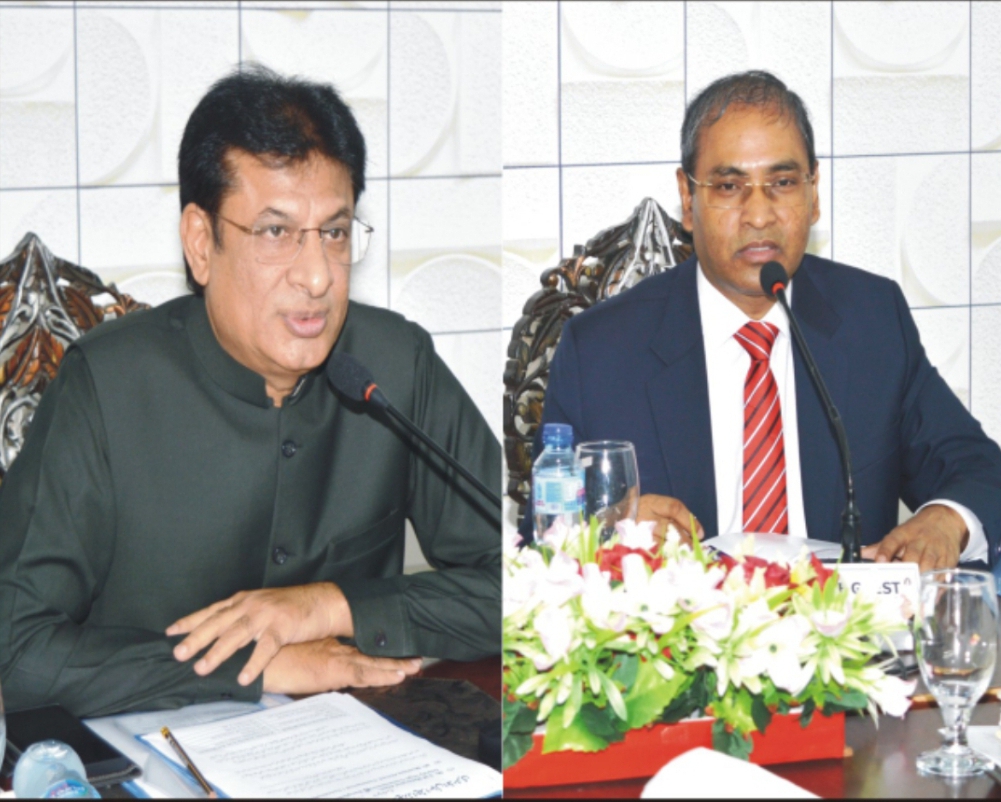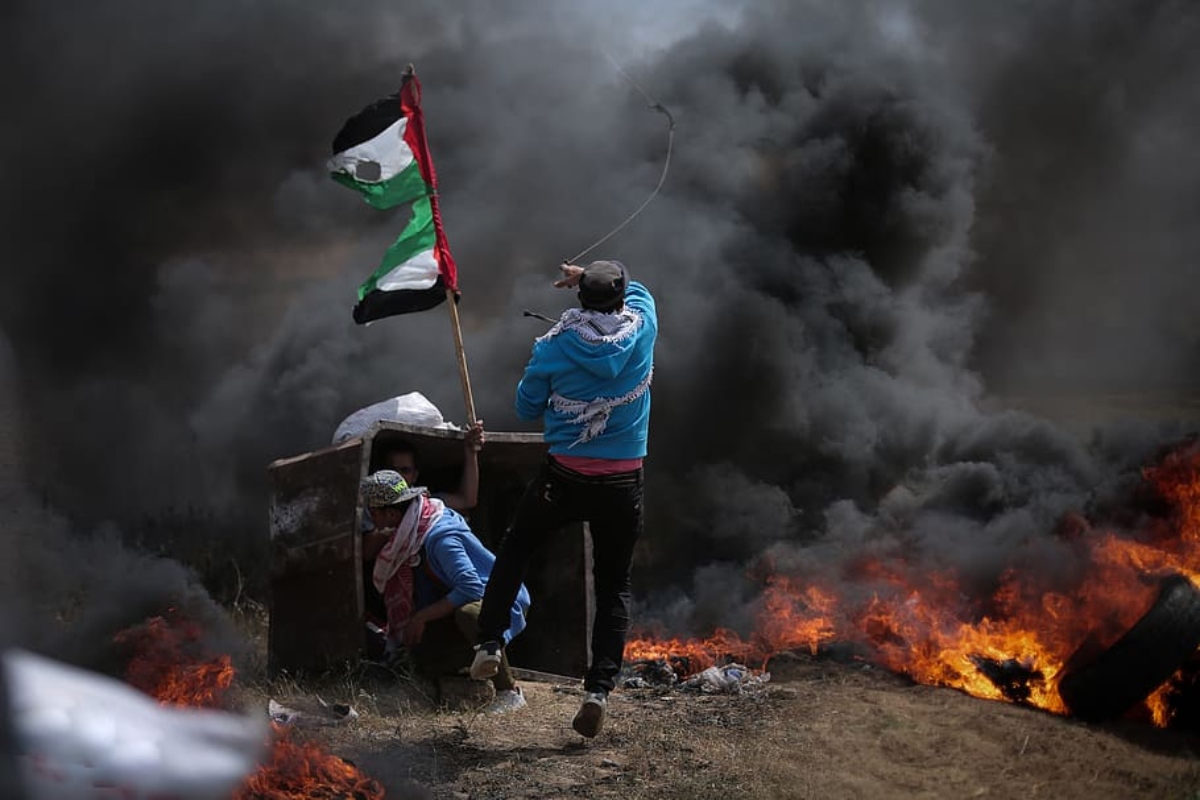
By Syed Wahaj Ahmed
KARACHI: Federation of Pakistan Chambers of Commerce and Industry (FPCCI) President Irfan Iqbal Sheikh has expressed collective concerns of the entire business, industry and trade community of Pakistan on the continuing inhumane siege of Palestine and barbaric attack on a hospital resulting in the martyrdom of upwards of 500 innocent lives and many more are struggling to survive. The hospital was treating and sheltering the wounded; women, children and other extremely vulnerable, he added.
Irfan Iqbal Sheikh also raised the issue of humanitarian crisis on the occasion of the visit of PML-N leader Maryam Nawaz Sharif to FPCCI’s regional office.
Sohail Alaf, senior member FPCCI, presented a resolution in this regard to strongly denounce the war crimes and atrocities on the unarmed and innocent civilians of Gaza and calling for an end to the war.
Sohail Altaf added that more than 4,000 Palestinian lives have been lost so far and hundreds more lives are being taken every day. Whereas, tens of thousands are seriously injured and more than a million Palestinians have been internally displaced and made homeless. It is prohibited under the Geneva Convention and international law to attack a hospital or a medical facility in any conflict or war under any circumstances – and, if committed, is considered a war crime.
FPCCI president demanded that: (i) there should be an immediate & absolute humanitarian ceasefire to enable provision of aid to reach the victims (ii) United Nations should intervene and lead the international efforts to save and rescue the war affected population of Gaza (iii) OIC should pool their resources to rehabilitate the people and reconstruct the city (iv) international community should prosecute the war crimes to the fullest extent of law.
He also expressed his fears that – if the war continues unabated – it may engulf the entire world in general and the region in particular. It will cause disruptions in regional and international trade; international oil supplies; disruptions in the international financial system and restricted international travel & movement. It is a gravely bleak scenario and there will be no winner of this war, he added.
Meanwhile, Progressive farmers stress need for conserving water: Progressive farmers and water experts have urged the government to take appropriate steps aimed to conserve water in lower areas of Sindh, promote urban agriculture and cultivate crops through drip irrigation over 50 per cent of Sindh’s uncultivated agricultural land.
They said this during speaking a consultation seminar titled “Food-Water Nexus: Connecting the Dots” hosted by Sindh Agriculture University (SAU) in association with Research and Development Foundation (RDF) and Welthungerhilfe (WHH) held at Senate Hall of SAU Hyderabad.
Sindh Abadgar Board leader and Progressive farmer Syed Nadeem Shah said: “Even in developed countries, vertical planting and food preservation are practiced, while in China, everyone grows vegetables for their needs in their homes. We should promote this trend to reduce food insecurity.”
He voiced concerns that the agricultural lands were being converted into colonies and housing schemes which bode badly in the country.
“No significant development has been made in agricultural production for last 30 years, so we have to promote technologies, related to urban agriculture and more efficient use of water,” SAU Vice Chancellor Dr Fateh Marri said.
He said that modern agricultural technology must be accessible to common peasants in the future on account of growing population following water shortage.
“Let me give an example that in Sindh, 1,300 litres of water are consumed for producing one-kilogram wheat and 2,500 litres for paddy because farmers have not yet been trained to accept the drip irrigation system,” SAU Dean of the Faculty of Agricultural Engineering Dr Altaf Siyal said.
He said that releasing sewage into the Indus River is polluting and degrading water being consumed by people, growers and livestock.
SIDA General Manager Transition Ghulam Mustafa Ujjan said that after the 18th amendment, students of universities should be involved in various research projects to constitute water and agriculture policies. He stressed that all stakeholders including both public and private institutions, and even farmers should work together on promoting agricultural produce with less water.
Moreover, RDF Executive Director Ashfaq Ahmed Soomro, WHH Programme Manager Sarwan Baloch, Dr Dilip Kumar and others stressed need for deploying water efficiently, conserving rainwater to cultivate the barren lands. They said that growers must be given trainings about the state-of-art and advanced technologies of agriculture to get better and more returns. They prognostigated and fretted that population of the world might reach 9.2 billion by 2050, causing an acute shortage of food in years to come.


